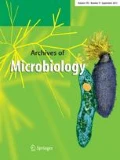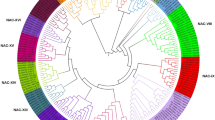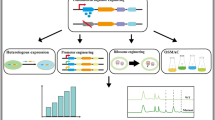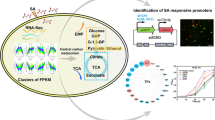Abstract
Salicylate stimulates the oxygen consumption and also induces multiple drug resistance in Mycobacterium tuberculosis. To gain insight into the mechanisms involved in the above observations, a microarray analysis of M. tuberculosis genes in response to salicylate was performed. Salicylate, besides highly inducing the 27 kD gene (Rv0560c) previously identified as highly salicylate-inducible, also caused increased transcription of a range of genes including an open reading frame (Rv0559c) that is located immediately downstream of the 27 kD gene, and some membrane/transmembrane proteins that may serve as potential efflux pumps or porins. Salicylate also caused a general shutdown of transcription and translation and energy production by down-regulating a range of genes involved in RNA and protein synthesis and ATP synthesis. The role of the salicylate-regulated genes in salicylate induced drug resistance and its unique effect on stimulating oxygen consumption in tubercle bacillus is discussed.


Similar content being viewed by others
References
Bernheim F (1940) The effect of salicylate on the oxygen uptake of the tubercle bacillus. Science 92:204
Betts JC, Lukey PT, Robb LC, McAdam RA, Duncan K (2002) Evaluation of a nutrient starvation model of Mycobacterium tuberculosis persistence by gene and protein expression profiling. Mol Microbiol 43:717–731
Cohen SP, Levy SB, Foulds J, Rosner JL (1993) Salicylate induction of antibiotic resistance in Escherichia coli: activation of the mar operon and a mar-independent pathway. J Bacteriol 175:7856–7862
Cole ST, Brosch R, Parkhill J, Garnier T, Churcher C, Harris D, Gordon SV, Eiglmeier K, Gas S, Barry III CE, Tekaia F, Badcock K, Basham D, Brown D, Chillingworth T, Connor R, Davies R, Devlin K, Feltwell T, Gentles S, Hamlin N, Holroyd S, Hornsby T, Jagels K, Krogh A, McLean J, Moule S, Murphy L, Oliver K, Osborne J, Quail MA, Rajandream MA, Rogers J, Rutter S, Seeger K, Skelton J, Squares R, Squares S, Sulston JE, Taylor K, Whitehead S, Barrell BG (1998) Deciphering the biology of Mycobacterium tuberculosis from the complete genome sequence. Nature (London) 393:537–544
Lehmann J (1946) p-aminosalicylic acid in the treatment of tuberculosis. Lancet I:15–16
Newton MA, Kendziorski CM, Richmond CS, Blattner FR, Tsui KW (2001) On differential variability of expression ratios: improving statistical inference about gene expression changes from microarray data. J Comput Biol 8:37–52
Okusu H, Ma D, Nikaido H (1996) AcrAB efflux pump plays a major role in the antibiotic resistance phenotype of Escherichia coli multiple-antibiotic-resistance (Mar) mutants. J Bacteriol 178:306–308
Pomposiello PJ, Bennik MH, Demple B (2001) Genome-wide transcriptional profiling of the Escherichia coli responses to superoxide stress and sodium salicylate. J Bacteriol 183:3890–3902
Price CT, Lee IR, Gustafson JE (2000) The effects of salicylate on bacteria. Int J Biochem Cell Biol 32:1029–1043
Schaller A, Sun Z, Yang Y, Somoskovi A, Zhang Y (2002) Salicylate reduces susceptibility of Mycobacterium tuberculosis to multiple antituberculosis drugs. Antimicrob Agents Chemother 46:2636–2639
Sun Z, Cheng S, Zhang H, Zhang Y (2001) Salicylate uniquely induces a 27-kDa protein in tubercle bacillus. FEMS Microbiol Lett 203:211–216
Zhang Y, Lathigra R, Garbe T, Catty D, Young D (1991) Genetic analysis of superoxide dismutase, the 23 kilodalton antigen of Mycobacterium tuberculosis. Mol Microbiol 5:381–391
Acknowledgments
The work was supported by NIH grant AI-44063 and Natural Science Foundation of China (30328031). The supply of M. tuberculosis arrays by TIGR PFGRC sponsored by NIH is gratefully acknowledged.
Author information
Authors and Affiliations
Corresponding author
Rights and permissions
About this article
Cite this article
Denkin, S., Byrne, S., Jie, C. et al. Gene expression profiling analysis of Mycobacterium tuberculosis genes in response to salicylate. Arch Microbiol 184, 152–157 (2005). https://doi.org/10.1007/s00203-005-0037-9
Received:
Revised:
Accepted:
Published:
Issue Date:
DOI: https://doi.org/10.1007/s00203-005-0037-9




